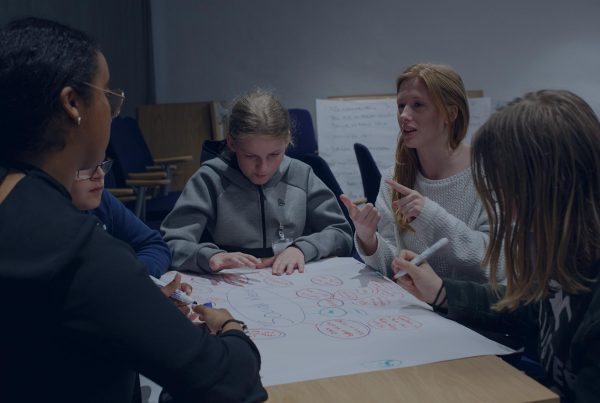Overcoming: 3 Steps to Help Students Leverage the Difficulties of Life for a Brighter Future
The adversity and challenge that so many of our students face is almost incomprehensible. Culture and society have changed drastically.
This generation has lived more life before adolescence than some in generations prior have lived in a lifetime. Not so much the good life – no, I am speaking more about the difficult things that kids are experiencing – abuse, neglect, family disfunction, violence at school, addictive and destructive substances and patterns of behavior, poverty and a cultural context rife with entitlement and a disdain for boundaries, personal responsibility and hard work. It’s no wonder so many young people are drowning in the fast waters of anxiety and depression and that suicide rates amongst the youngest members of society are on the rise.
But before we acquiesce to the belief that hopeful futures belong to the privileged few who have enjoyed life characterized by good fortune, unlimited opportunity and a positive context, lets assess our perspective on adversity. Maybe there’s a different way of looking at the challenges that life presents. What if difficulty landed in the assets column more often than the liabilities column? What if adversity was the fuel that powered success, accomplishment and a sense of purpose in the lives of our students? Here are three things you can do to help kids leverage the challenging things they face.
1. Validate the struggle.
Do your best to see the difficult things a student is facing through their eyes. The struggle may seem insignificant to you and others on the outside but to the child it’s a big deal. Validating the struggle gives a student a sense of confidence and security and assures them that what they are experiencing is real and that it matters. Validation includes listening without judgement and acknowledging the things the child is feeling around their adversity. Maybe they are embarrassed or feeling ashamed. Maybe they think that they are the only one enduring what they are experiencing. Maybe the difficulty makes them feel like they don’t belong. Walking empathetically beside a child through their feelings and emotions will help them to feel validated.
2. Help students become motivated by the difficulties they face.
It is hard to find glimmers of hope in the darkness of difficult circumstances. But if students can be taught and encouraged to exercise some critical thinking and analytical strategy instead of bowing at the altar of their emotions, they will find the motivation that will make the future that much brighter. What can a young man who is growing up without a relationship with his dad learn about the importance of being a good father himself someday? What can a young girl whose mom has tied her own sense of self-worth to the number of men who objectify her sexually at any given time learn and leverage to ensure that she has a better image of herself as she matures into womanhood? What can a child who lives in poverty because of a lack of responsibility or sound judgement on the part of his parents around the family finances learn that will cause him to avoid the same perils as he grows to manhood? Left to the will of the negative circumstances in which they live, and without the ability to find motivation in them, a child is destined to duplicate the destructive pattern as he or she grows older.
3. Be a refuge for your kids.
No one should have to face difficulties on their own – especially children. Kids need to know where they can turn when the hard things are bearing down on them. (Incidentally, part of the Discovery Series from Rewriting Futures and the Gene Duffy Foundation is the Safe Spot which represents a safe haven where kids can be honest about the hard things they are experiencing. Check it out here.) Be a safe place for kids. Better yet, be instrumental in the development of a safe community for kids. Caring adults and peers who are tracking in a positive direction are essential to the success of students who are facing hard things. Life is not a solo sport. We were created for community – to be part of a tribe. For many, the home and family environments are not what they should be. Children whose home contexts are negative and even dangerous must have some place to turn. Be prepared to meet basic material, social and emotional needs. Build out a list of referral sources that can provide kids the best possible chance to survive and even thrive amidst the chaos and pain of the negative things they are facing.
Difficulty and disappointment are a part of life. We all face them in varying forms and in different seasons. It’s not just students. You have experienced the storms and I am sure that you know of other teachers and friends who are walking through some deep water too. As odd as it may sound, adversity is the pay dirt that contains the precious metal of opportunity, and we can’t afford to let it go unmined. Help your students (and friends and co-workers, for that matter) leverage their pain and difficulty to make their futures as bright and fulfilling as they can and should be.








